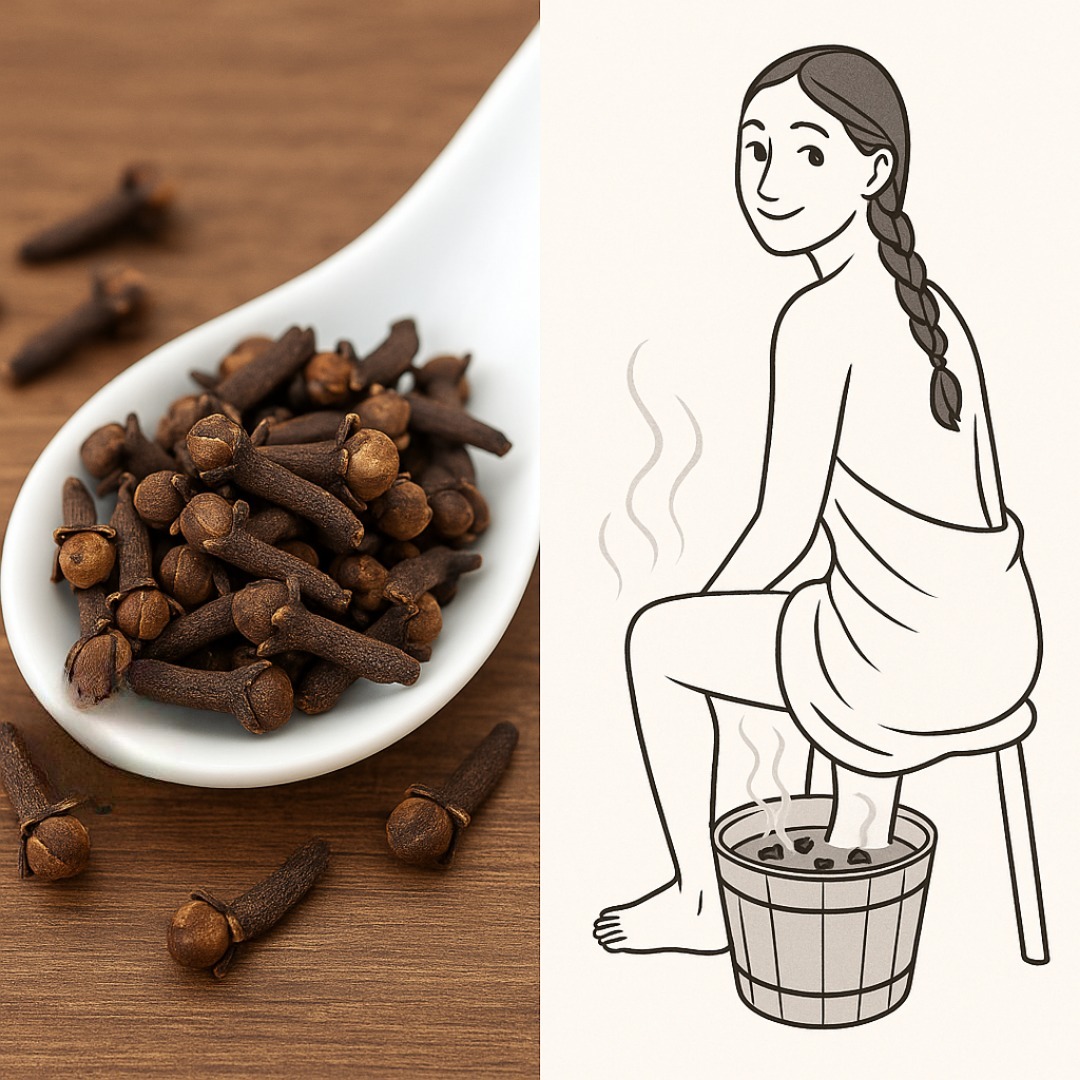Cloves are more than just a warm spice for holiday baking or mulled cider — they’re one of the most potent medicinal herbs in the world. For centuries, cloves have been used in Ayurvedic, Chinese, and traditional herbal medicine for everything from toothaches to digestion.
Today, modern science is catching up, uncovering the powerful bioactive compounds inside these tiny buds — especially eugenol, an oil with natural anesthetic, antiseptic, and anti-inflammatory properties.
If you’ve ever wondered why cloves are considered a wellness powerhouse, here’s a science-backed guide to their healing benefits, safe uses, and common myths to avoid.
1. Natural Relief for Toothaches & Oral Health
Cloves have long been a go-to remedy for dental pain. The secret lies in eugenol, the compound that gives clove oil its strong aroma and numbing effect.
-
Used in dentistry as a natural anesthetic and antiseptic
-
Studies show clove oil reduces toothache and gum inflammation
-
Found in some natural toothpastes and mouthwashes
💡 Try this: Dip a cotton ball in diluted clove oil (1 drop in a teaspoon of carrier oil) and place it near the aching tooth for temporary relief.
⚠️ Important: This is not a substitute for dental treatment. Cloves can help with discomfort, but cavities and infections still require professional care.
2. Supports Healthy Digestion
Cloves don’t just flavor your food — they may also help your stomach feel better afterward.
-
Stimulate digestive enzymes to improve nutrient breakdown
-
Traditionally used to ease nausea, bloating, and indigestion
-
Animal studies suggest they may help protect the stomach lining
✅ Use whole or ground cloves in teas, stews, curries, or spice blends. Many cultures sip clove tea after meals to ease digestion naturally.
3. Packed with Antioxidants
Free radicals are unstable molecules that can damage cells over time, contributing to aging and chronic illness. Cloves happen to be one of the richest antioxidant foods ever studied.
📌 According to the Journal of Agricultural and Food Chemistry, cloves ranked #1 among 26 common spices for antioxidant capacity.
This means cloves may help:
-
Reduce cellular damage linked to heart disease and cancer
-
Support immune function
-
Promote overall vitality
Adding even small amounts of ground cloves to recipes can deliver a surprising antioxidant punch.
4. Anti-Inflammatory Properties
Chronic inflammation is linked to arthritis, heart disease, and many other conditions. Cloves may help fight this through their unique compounds:
-
Eugenol inhibits inflammatory pathways in the body
-
May help ease joint discomfort when used topically or in food
-
Works well when combined with ginger or turmeric
💡 Wellness tip: Blend a pinch of clove powder into golden milk with turmeric and ginger for a warming, anti-inflammatory drink.
5. May Help with Blood Sugar Balance
Emerging studies suggest cloves could play a role in blood sugar regulation:
-
Some research shows improved insulin sensitivity
-
A small human study found better fasting glucose levels in people with type 2 diabetes who took clove extract
-
Early evidence suggests cloves may support metabolic health
⚠️ Cloves are not a substitute for prescribed medication, but they may be a safe complementary spice for people managing blood sugar under medical supervision.
How to Use Cloves Safely
There are many ways to enjoy cloves, but moderation is key:
-
Whole cloves – Add to mulled wine, chai tea, rice dishes, or stews. Always remove before eating.
-
Ground cloves – Perfect for baking, smoothies, spice blends, or pumpkin pie. Use sparingly — the flavor is strong.
-
Clove tea – Steep 2–3 whole cloves in hot water for 5–10 minutes.
-
Clove oil – Always dilute with a carrier oil (like coconut or olive). Use topically for pain relief. Never ingest without professional guidance.
Safety & Precautions
While cloves are safe in food amounts, concentrated forms (like essential oils or extracts) need caution:
❗ Children under 2 – Avoid clove oil; risk of liver damage.
❗ Pregnant or breastfeeding women – Avoid medicinal doses unless cleared by a doctor.
❗ People on blood thinners – Eugenol may increase bleeding risk.
❗ Sensitive skin – Undiluted clove oil can burn or irritate skin.
❗ Before surgery or dental work – Stop using clove products 1–2 weeks before due to bleeding risks.
⚠️ Never swallow clove oil — it can be toxic in high doses.
Common Myths About Cloves
❌ “Clove oil cures cavities.”
No — it can numb pain, but it doesn’t heal decay.
❌ “Eating cloves detoxes your liver.”
Your liver detoxes naturally; no spice can cleanse it.
❌ “Cloves kill cancer cells.”
Lab studies show promise, but there’s no proof they treat cancer in humans.
❌ “More is better.”
Too much can cause nausea, low blood sugar, or even liver problems.
Everyday Ways to Add Cloves to Your Life
-
Brew a comforting chai latte with cinnamon, cardamom, and cloves.
-
Simmer mulled cider or wine during the holidays.
-
Add a pinch of ground cloves to oatmeal or smoothies for warmth and flavor.
-
Use clove oil in aromatherapy diffusers for a cozy, spiced scent.
-
Take a natural health class or cooking workshop to learn safe herbal uses.
Final Thoughts
You don’t need exotic supplements or expensive superfoods to support your health. Sometimes, the most powerful remedies are already waiting in your kitchen.
Cloves offer more than just flavor — they provide antioxidant power, digestive support, and natural relief for common aches and discomforts.
But remember: real wellness isn’t about miracle cures. It’s about balance, safe use, and listening to your body.
So next time you stir cloves into your chai, season your stew, or use them for gentle pain relief, pause for a moment. Appreciate how this tiny spice has carried centuries of tradition — and now, modern science — into your teacup.
Because healing doesn’t come from magic bullets.
It comes from small, wise choices, simmered slowly — one clove at a time. 🌿



